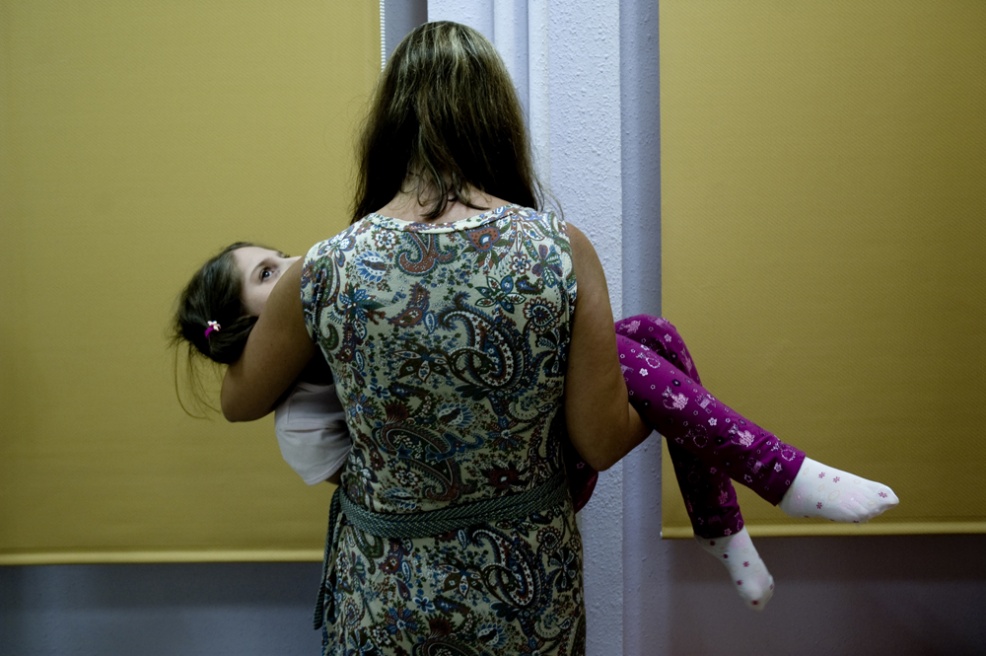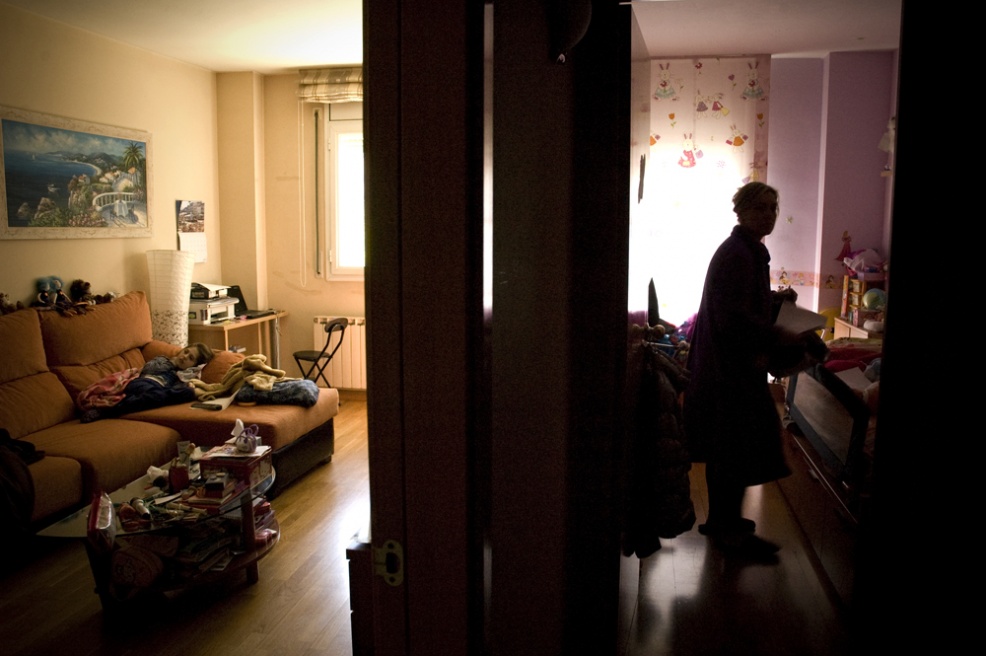DEPENDENT LIVES by Luigi Abanto Varese.
I met Elisenda just after I started working in the pharmacy where she is a regular client. I was struck by the quantity of medicines, nappies, orthopedic materials and the plethora of other products necessary in order for her to care for a child. Raquel, her five year old daughter (who my colleagues regard with great affection), enjoys perfect health and vitality like all children of that age. Day by day the contact of pharmacist and client turned into a friendship that enabled us to get to know each other more fondly.
It was at this point that I got to know about Andrea, her oldest daughter, who was already nine years old.
Andrea was born like any other healthy baby, her abilities and premature intelligence grabbed people’s attention and made her parents proud.
It was when she was nineteen months old, in the middle of a night in March that the nightmare began. She started to suffer from high temperatures, constant vomiting and had extreme pain in her legs, arms and head. She would cry out, horrifying screams that still remain in Elisenda’s memory.
The doctors didn’t react at this time. For them a more detailed treatment was not necessary, despite the fact that Andrea’s infernal days went on. A simple diagnosis of gastroenteritis revealed they were not very conscious of what was coming.
In just a few days, a simple virus of herpes type 1, the agent of herpetic encephalopathy, devastated more than sixty percent of Andrea’s brain, resulting in a necrosis of every cerebral tissue that “medical apathy” could allow in that time.
By the time the doctors reacted it was already too late. On the fifth day after her symptoms began, she slipped into a coma. Although medical attention was late in coming, intensive care meant Andrea was able to keep her life.
When Andrea woke up, the idea of her parents having to watch her grow and live this life completely devastated them. Andrea now remains trapped in her own body, unable to stand by herself, and she cannot communicate with the exterior except through a few exclamations or simple corporeal noises that signal her needs to Elisenda. Her vision has decreased by ninety percent. She has lost the ability to swallow, so she now needs to be fed through a catheter which is connected to a gastric valve which was implanted days before they discharged her from hospital.
Years later, when my friendship with Elisenda began and she was already a mother for the second time and divorced, she gave me the opportunity to share her daily family situations, situations in which the strength and spirit of Elisenda and her mother, Esperanza, made it possible for Andrea’s life to go on and for Raquel to see life with as much optimism as possible.
Spain’s current government, pressured by the financial crisis, has decided to reduce public expenditure to families with disabled members. The consequences of this measure are uncertain but likely to go adrift.
The day we went to Andrea’s periodic check-up, the doctors determined that Andrea´s spinal column and hip should be operated on. They are still discussing whether she can withstand both operations in only one intervention. She also needs a new splint for her feed, which social security is refusing to pay for.
When we left the hospital I asked Elisenda what she would do if social security took away the economic support that they gave her and wouldn’t pay for the new splint either. “I will get it. Don’t you know me, by now?” she answered.

















